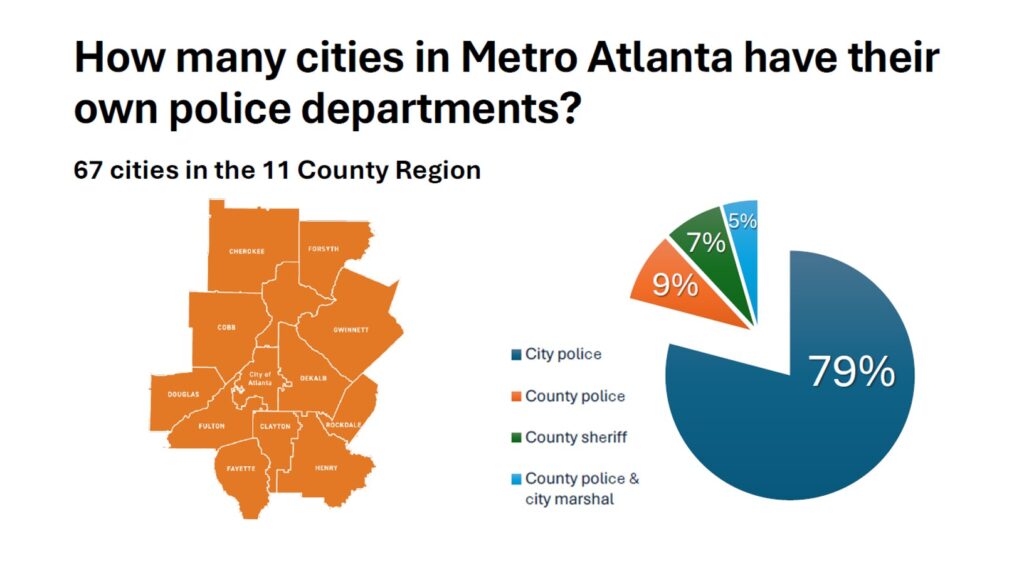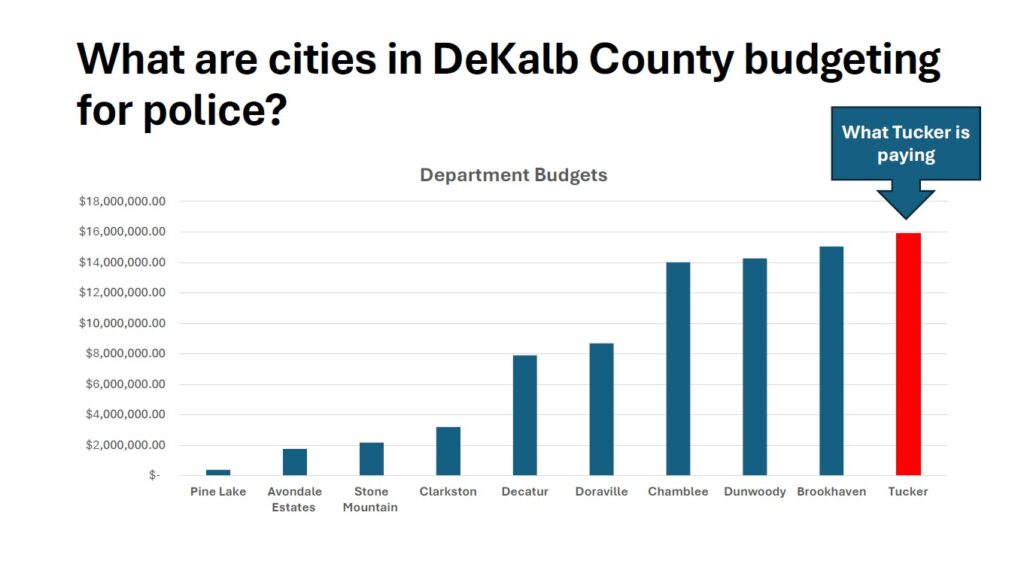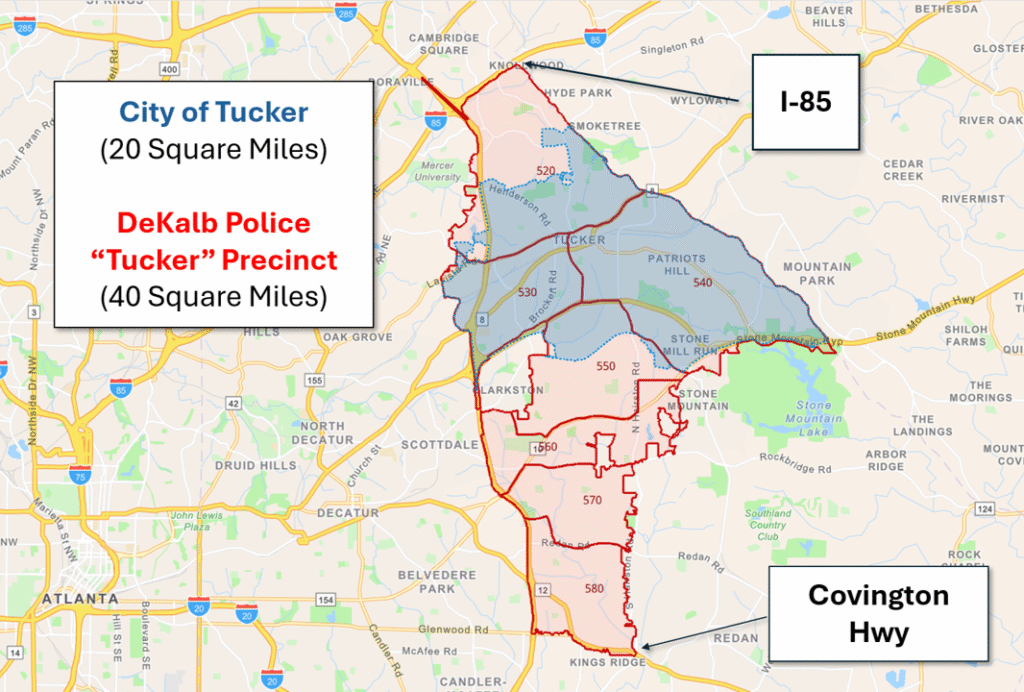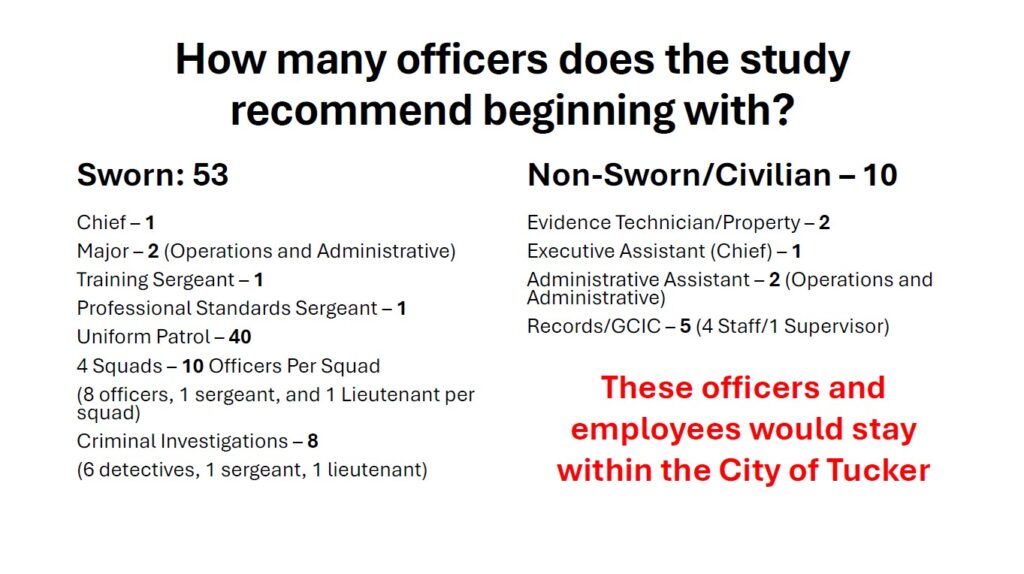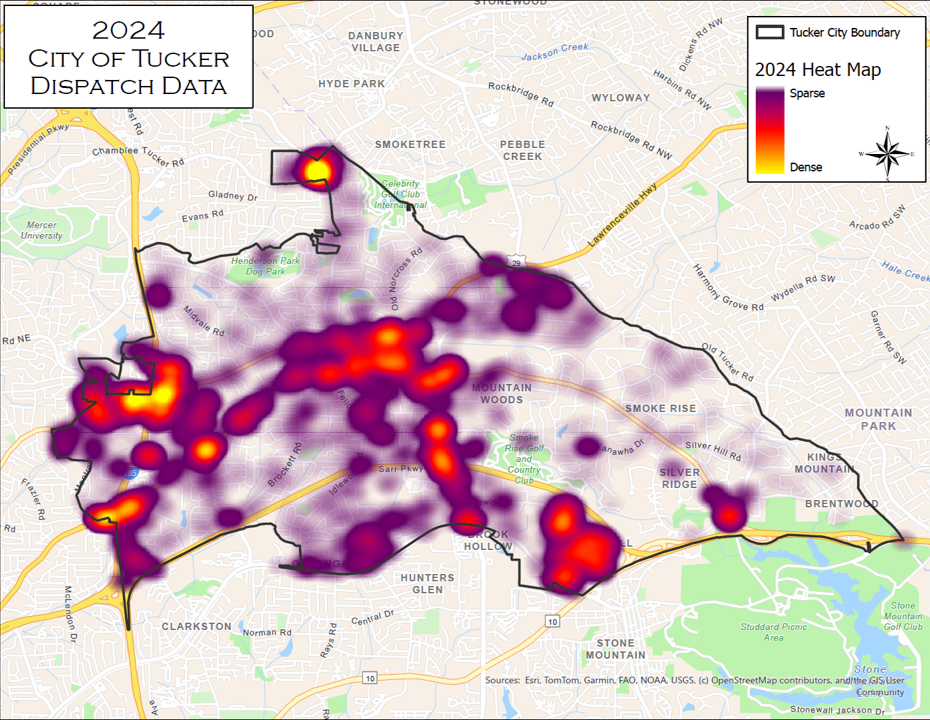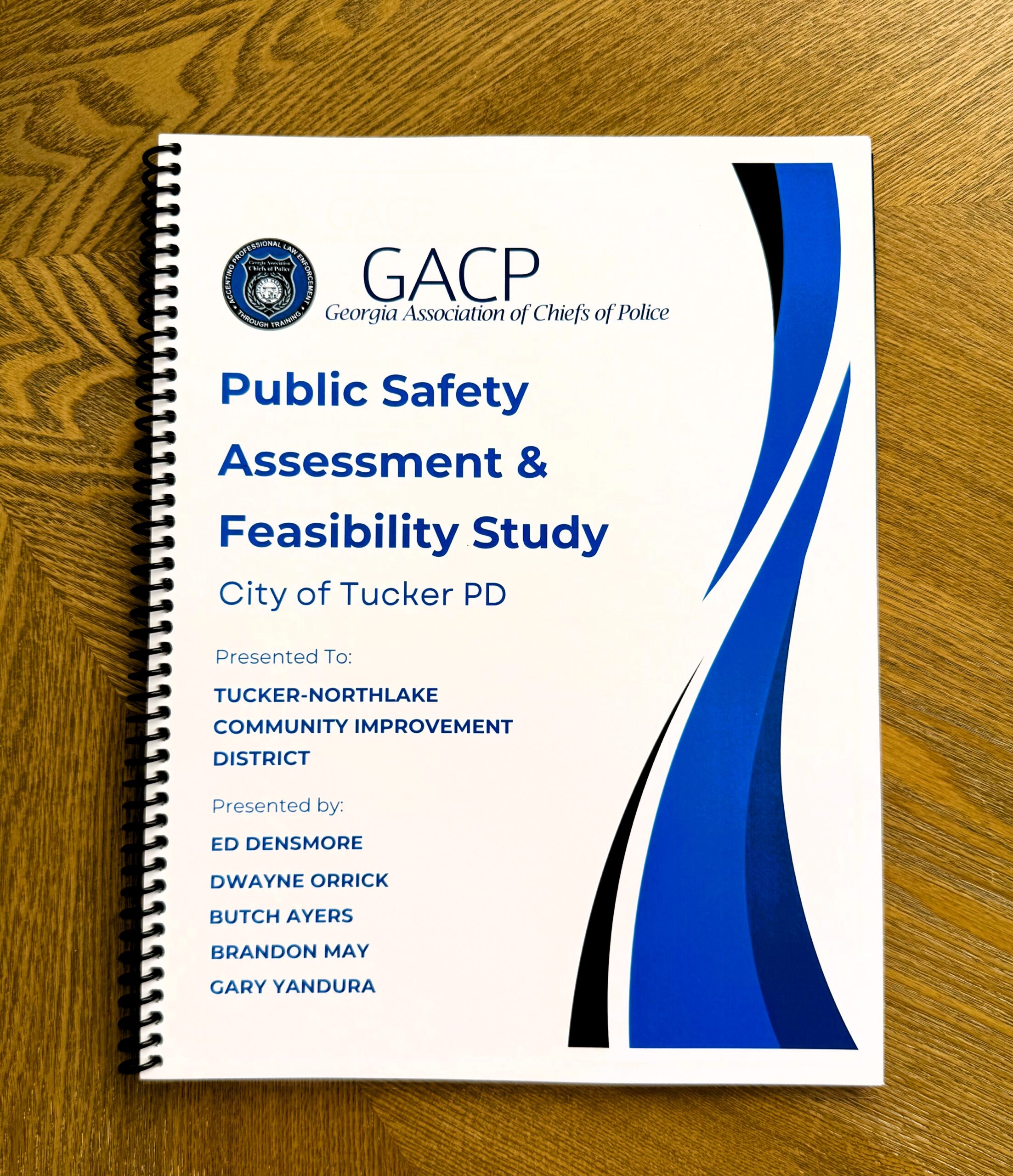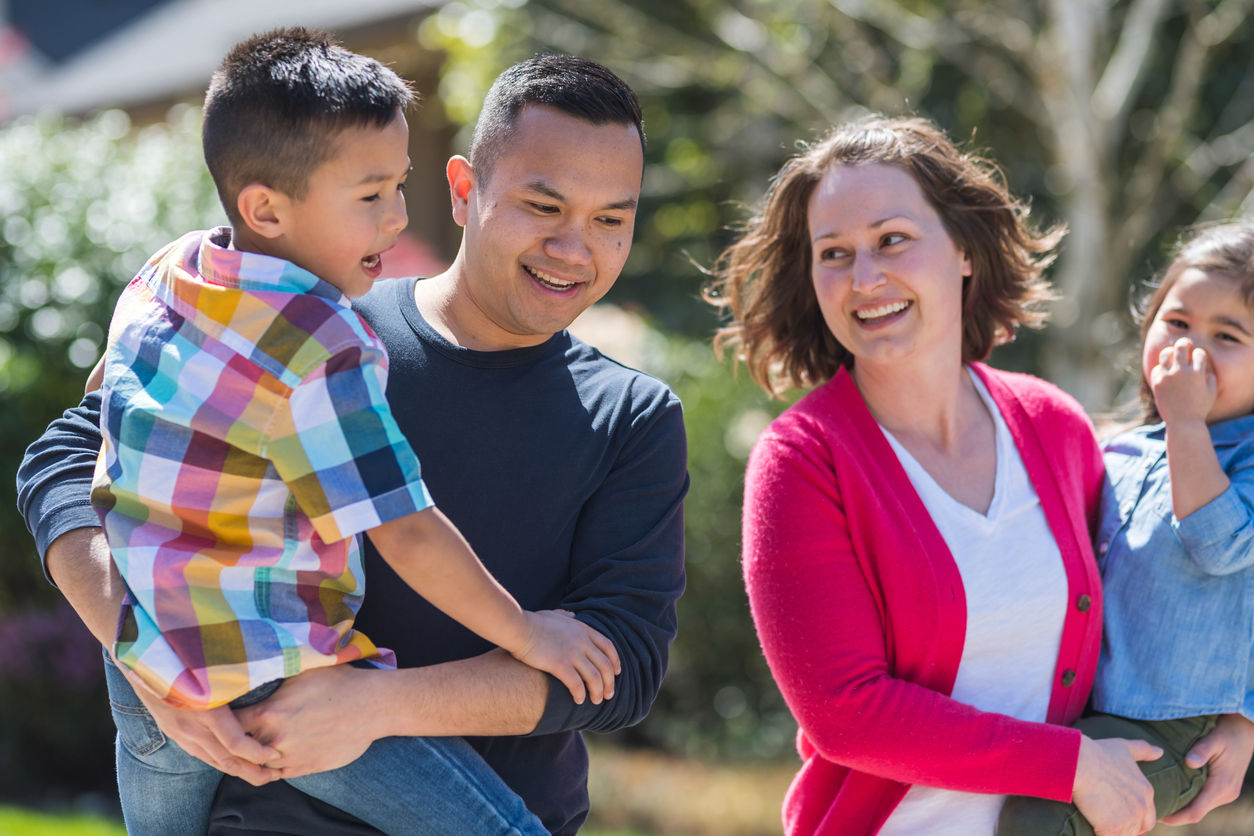On September 9, 2025, the Tucker-Northlake Community Improvement District (CID) and the Georgia Association of Chiefs of Police (GACP) presented the findings of the Tucker Public Safety Assessment and Feasibility Study at a community meeting hosted by the Tucker Civic Association. The meeting took place at the Northlake Church of Christ.
Presenters were Matthew Lee, Executive Director of the Tucker-Northlake CID, and two of the authors of the study, Dwayne Orrick and Ed Densmore with the Georgia Association of Chiefs of Police.
The study was commissioned in January after years of concerns over crime and response times. The presenters did not recommend a specific path forward. Instead, they provided clear information on current conditions, how to get started, and what could follow should Tucker decide to form its own department.
The presentation showed that Tucker stands out in the Atlanta Region. Of 67 cities across 11 counties, 79% operate their own police departments. Tucker is one of only six cities still served exclusively by county police.
At the same time, Tucker property owners are paying more than neighboring cities with local departments. In 2024, Tucker contributed approximately $15.9 million in county property taxes for police services, compared to budgets of $15.0 million in Brookhaven and $14.3 million in Dunwoody—both cities with larger populations.
Cost isn’t the only contrast. Response times also differ significantly. Based on police dispatch data from 2023 and 2024, Brookhaven and Dunwoody averaged dispatch in just over a minute and officer arrival within three minutes. In Tucker, county dispatch averages more than seven minutes, with officer arrival taking approximately eight minutes.
“It’s not an apples-to-apples comparison,” said Matthew Lee. “No two cities are identical. Tucker is geographically larger with more expressway exits, but response times are important to consider.”
Under the current model no DeKalb County Officers are committed remain within the City of Tucker. Each assignment includes areas both in and out of Tucker. This reduces availability within the city as officers many be responding to calls outside the city. What residents think of as the “Tucker Precinct” is largely branding and not an accurate description of the area served.
The precinct office is in Tucker, but half the area served by officers in the Tucker Precinct is outside the City.
The study also outlined what a Tucker Police Department could look like if created. It recommends beginning with 53 sworn officers and 10 civilian staff, organized into four patrol squads along with investigations and administrative support. Ed Densmore, with the Georgia Association of Chiefs of Police, pointed out that city departments are better served by investing in officers rather than becoming top heavy in management.
A heat map revealed that calls for service where police were dispatched—those responding to car accidents, non-crime related incidents, and to reports of crime—were largely centered on commercial areas. The biggest exception to this pattern was the Juliette Road area in the southeast end of the city. The area is almost entirely residential. An interactive version of the heat map is available via this link.
The estimated cost to launch the department is approximately $10.7 million in the first year—covering salaries, vehicles, equipment, and technology—which is significantly less than what Tucker taxpayers already contribute for county services.
The study was not intended to be comprehensive. Decisions about additional costs for facilities and optional services such as a K-9 unit, would fall to the City Council if Tucker chose to move forward. Still, both the 2020 county study and this 2025 study conclude that a local department is feasible.
The CID continues to have productive conversations with county leaders about their ongoing progress within the department and with 911.
“DeKalb County is making improvements in public safety under the leadership of CEO Lorraine Cochran-Johnson and Interim Chief Greg Padrick,” said Lee. “We look forward to sharing those updates when they are available. We all support the same goals of providing the best service possible.” The presenters agreed that even with a city police department, it would need a cooperative relationship with the county, consistent with every city–county arrangement in Georgia.

Questions from those in attendance ranged from hiring practices—which would not be determined until after a department is approved—to the importance of selecting the right chief, the impact on courts, traffic stops, and the role of police visibility as a deterrent to crime. Slides from the presentation, with additional notes for clarification, can be found here. The Tucker Civic Association has also shared a video of the presentation.
The meeting closed with a call for residents and businesses to share their experiences and perspectives on crime and public safety through a Public Safety Survey. The responses are anonymous and will be shared with city and county leadership.

